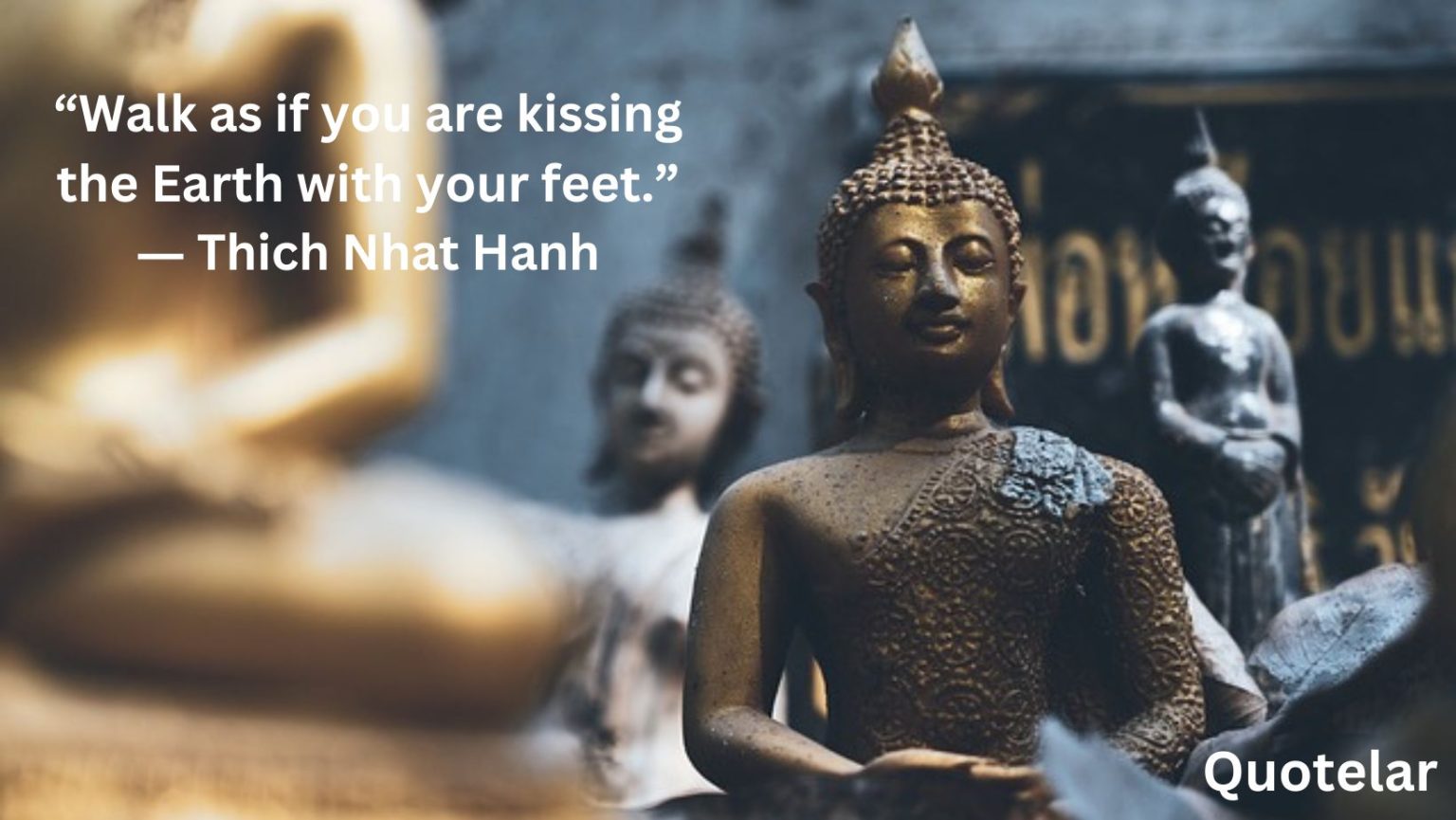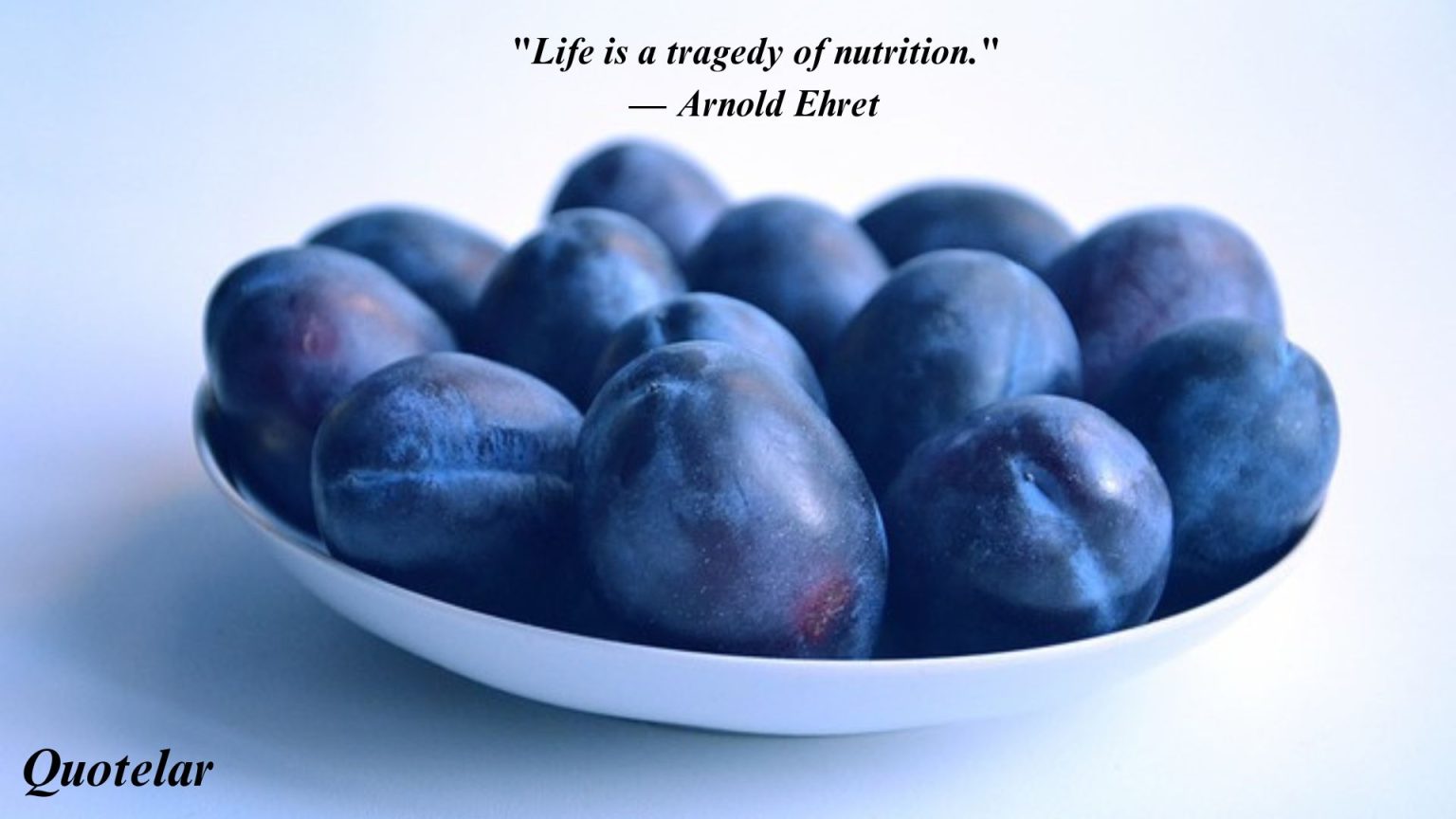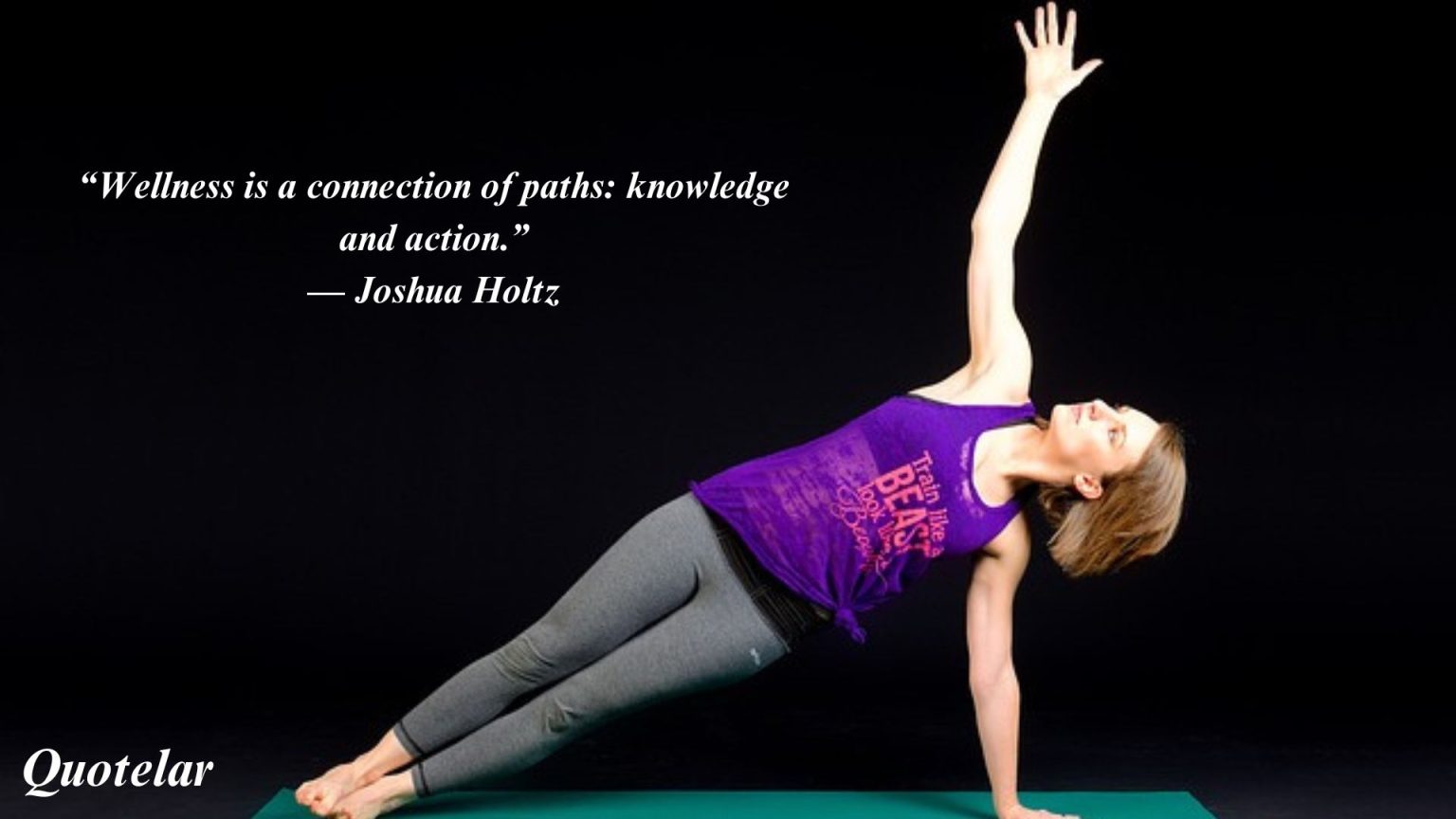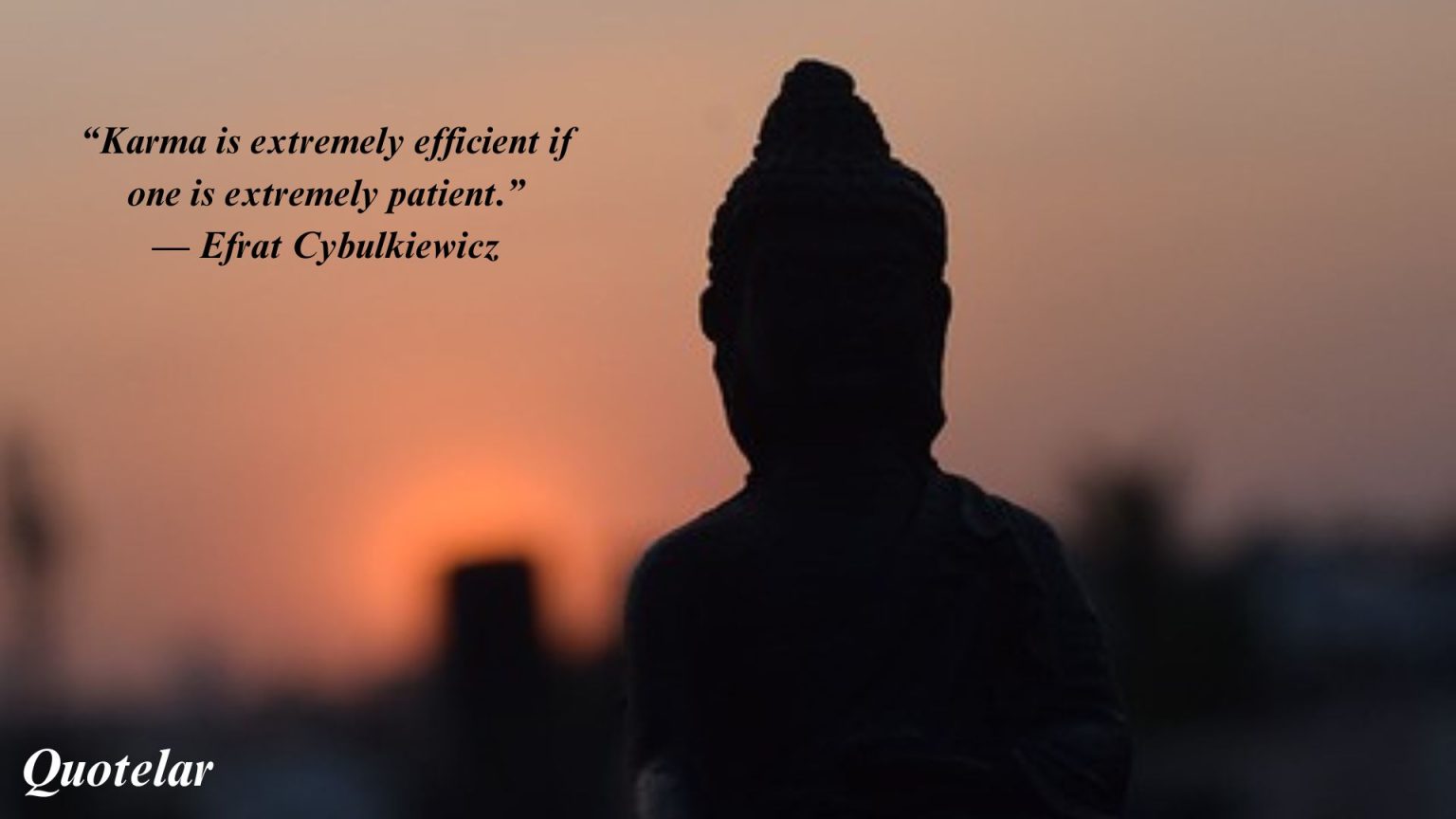Buddhism is a major world religion that originated in ancient India around the 5th century BCE. It was founded by Siddhartha Gautama, who is more commonly known as the Buddha or the “Enlightened One.” Buddhism encompasses a variety of beliefs, practices, and traditions, and it has spread to many parts of the world over the centuries.
The core teachings of Buddhism revolve around the Four Noble Truths and the Noble Eightfold Path. The Four Noble Truths are:
Dukkha: The truth of suffering. It acknowledges that suffering is an inherent part of human existence and that everyone experiences various forms of dissatisfaction, pain, and suffering.
Samudaya: The truth of the origin of suffering. It explains that attachment, desire, and craving are the root causes of suffering. By eliminating these attachments, one can overcome suffering.
Nirodha: The truth of the cessation of suffering. It suggests that by letting go of attachments and desires, one can achieve liberation from suffering and attain a state of inner peace and happiness.
Magga: The truth of the path to the cessation of suffering. It outlines the Noble Eightfold Path, which consists of eight principles that guide individuals toward enlightenment and liberation from suffering.
The Noble Eightfold Path includes Right View, Right Intention, Right Speech, Right Action, Right Livelihood, Right Effort, Right Mindfulness, and Right Concentration. These aspects cover various aspects of ethical conduct, mental discipline, and wisdom.
Buddhism does not worship a supreme deity or creator but instead focuses on individual spiritual development and enlightenment. The ultimate goal in Buddhism is to achieve liberation from the cycle of birth, death, and rebirth (known as samsara) and reach a state of enlightenment or Nirvana.
Buddhism has several major branches, including Theravada, Mahayana, and Vajrayana. Theravada Buddhism is prevalent in Southeast Asia and emphasizes the original teachings of the Buddha. Mahayana Buddhism is more widespread in East Asia and focuses on compassion and the idea of the bodhisattva, one who seeks enlightenment for the benefit of all sentient beings. Vajrayana Buddhism is prominent in Tibet and utilizes unique practices and rituals.
Meditation plays a significant role in Buddhism as a means to develop mindfulness, concentration, and insight. Buddhist monastic communities, consisting of monks and nuns, uphold a disciplined lifestyle devoted to study, meditation, and service to others.
It’s important to note that Buddhism has evolved and adapted to various cultural contexts, resulting in different interpretations and practices across different regions.
Buddhism Quotes
1. “Walk as if you are kissing the Earth with your feet.”
― Thich Nhat Hanh
2. “No one saves us but ourselves. No one can and no one may. We ourselves must walk the path.”
― Gautama Buddha
3. “Man suffers only because he takes seriously what the gods made for fun.”
― Alan Wilson Watts
4. “Learning to let go should be learned before learning to get. Life should be touched, not strangled. You’ve got to relax, let it happen at times, and at others move forward with it.”
― Ray Bradbury
5. “You only lose what you cling to.”
― Gautama Buddha
6. “Letting go gives us freedom, and freedom is the only condition for happiness. If, in our heart, we still cling to anything – anger, anxiety, or possessions – we cannot be free.”
― Thich Nhat Hanh
7. “1. Accept everything just the way it is.
2. Do not seek pleasure for its own sake.
3. Do not, under any circumstances, depend on a partial feeling.
4. Think lightly of yourself and deeply of the world.
5. Be detached from desire your whole life long.
6. Do not regret what you have done.
7. Never be jealous.
8. Never let yourself be saddened by a separation.
9. Resentment and complaint are appropriate neither for oneself nor others.
10. Do not let yourself be guided by the feeling of lust or love.
11. In all things have no preferences.
12. Be indifferent to where you live.
13. Do not pursue the taste of good food.
14. Do not hold on to possessions you no longer need.
15. Do not act following customary beliefs.
16. Do not collect weapons or practice with weapons beyond what is useful.
17. Do not fear death.
18. Do not seek to possess either goods or fiefs for your old age.
19. Respect Buddha and the gods without counting on their help.
20. You may abandon your own body but you must preserve your honour.
21. Never stray from the Way.”
― Miyamoto Musashi
8. “You are an aperture through which the universe is looking at and exploring itself.”
― Alan Watts
9. “We are not going in circles, we are going upwards. The path is a spiral; we have already climbed many steps.”
― Hermann Hesse
10. “Even if things don’t unfold the way you expected, don’t be disheartened or give up. One who continues to advance will win in the end.”
― Daisaku Ikeda
11. “Many people think excitement is happiness…. But when you are excited you are not peaceful. True happiness is based on peace.”
― Thich Nhat Hanh
12. “A man is not called wise because he talks and talks again; but if he is peaceful, loving and fearless then he is in truth called wise.”
― Dhammapada
13. “If we learn to open our hearts, anyone, including the people who drive us crazy, can be our teacher.”
― Pema Chodron
14. “If there is any religion that could respond to the needs of modern science, it would be Buddhism.”
― Albert Einstein
15. “If someone comes along and shoots an arrow into your heart, it’s fruitless to stand there and yell at the person. It would be much better to turn your attention to the fact that there’s an arrow in your heart…”
― Pema Chödrön
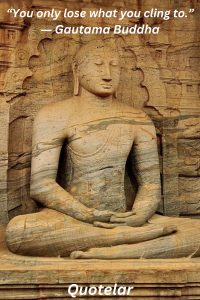
16. “People get into a heavy-duty sin and guilt trip, feeling that if things are going wrong, that means that they did something bad and they are being punished. That’s not the idea at all. The idea of karma is that you continually get the teachings that you need to open your heart. To the degree that you didn’t understand in the past how to stop protecting your soft spot, how to stop armoring your heart, you’re given this gift of teachings in the form of your life, to give you everything you need to open further.”
― Pema Chodron
17. “Greater in battle
than the man who would conquer
thousand-thousand men,
is he who would conquer
just one — himself.
Better to conquer yourself
than others.
When you’ve trained yourself,
living in constant self-control,
neither a deva nor gandhabba,
nor a Mara banded with Brahmas,
could turn that triumph
back into defeat.”
― Buddha
18. “Now, Kalamas, don’t go by reports, by legends, by traditions, by scripture, by logical conjecture, by inference, by analogies, by agreement through pondering views, by probability, or by the thought, ‘This contemplative is our teacher.’ When you know for yourselves that, ‘These qualities are skillful; these qualities are blameless; these qualities are praised by the wise; these qualities, when adopted & carried out, lead to welfare & to happiness’ — then you should enter & remain in them. [Kalama Sutta, AN 3.65]”
― Gautama Buddha
19. “It is like a lighted torch whose flame can be distributed to ever so many other torches which people may bring along; and therewith they will cook food and dispel darkness, while the original torch itself remains burning ever the same. It is even so with the bliss of the Way.”
― Buddha Siddhartha Guatama Shakyamuni
20. “it is impossible to build one’s own happiness on the unhappiness of others. This perspective is at the heart of Buddhist teachings.”
― Daisaku Ikeda
21. “I like the relaxed way in which the Japanese approach religion. I think of myself as basically a moral person, but I’m definitely not religious, and I’m very tired of the preachiness and obsession with other people’s behavior characteristic of many religious people in the United States. As far as I could tell, there’s nothing preachy about Buddhism. I was in a lot of temples, and I still don’t know what Buddhists believe, except that at one point Kunio said ‘If you do bad things, you will be reborn as an ox.’ This makes as much sense to me as anything I ever heard from, for example, the Reverend Pat Robertson.”
― Dave Barry
22. “Treat every moment as your last. It is not preparation for something else.”
― Shunryu Suzuki
23. “Whatever a monk keeps pursuing with his thinking and pondering, that becomes the inclination of his awareness.”
― Siddhārtha Gautama
24. “These… things, householder, are welcome, agreeable, pleasant, & hard to obtain in the world:
Long life is welcome, agreeable, pleasant, & hard to obtain in the world.
Beauty is welcome, agreeable, pleasant, & hard to obtain in the world.
Happiness is welcome, agreeable, pleasant, & hard to obtain in the world.
Status is welcome, agreeable, pleasant, & hard to obtain in the world.
…Now, I tell you, these… things are not to be obtained by reason of prayers or wishes. If they were to be obtained by reason of prayers or wishes, who here would lack them? It’s not fitting for the disciple of the noble ones who desires long life to pray for it or to delight in doing so. Instead, the disciple of the noble ones who desires long life should follow the path of practice leading to long life. In so doing, he will attain long life…
[Ittha Sutta, AN 5.43]”
― Buddha
25. “Rage — whether in reaction to social injustice, or to our leaders’ insanity, or to those who threaten or harm us — is a powerful energy that, with diligent practice, can be transformed into fierce compassion.”
― Bonnie Myotai Treace
26. “Life is painful. It has thorns, like the stem of a rose. Culture and art are the roses that bloom on the stem. The flower is yourself, your humanity. Art is the liberation of the humanity inside yourself.”
― Daisaku Ikeda
27. “Yes I am, I am also a Muslim, a Christian, a Buddhist, and a Jew.”
― Mahatma Gandhi
28. “O snail
Climb Mount Fuji
But slowly, slowly!”
― Kobayashi Issa
29. “Usually when we hear or read something new, we just compare it to our own ideas. If it is the same, we accept it and say that it is correct. If it is not, we say it is incorrect. In either case, we learn nothing.”
― Thich Nhat Hanh
30. “As human beings, not only do we seek resolution, but we also feel that we deserve resolution. However, not only do we not deserve resolution, we suffer from resolution. We don’t deserve resolution; we deserve something better than that. We deserve our birthright, which is the middle way, an open state of mind that can relax with paradox and ambiguity.”
― Pema Chödrön
